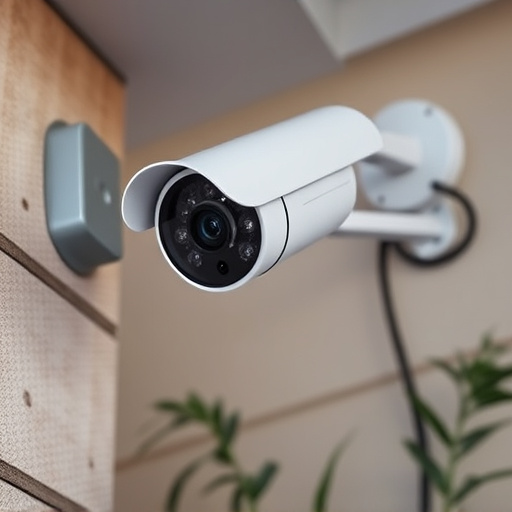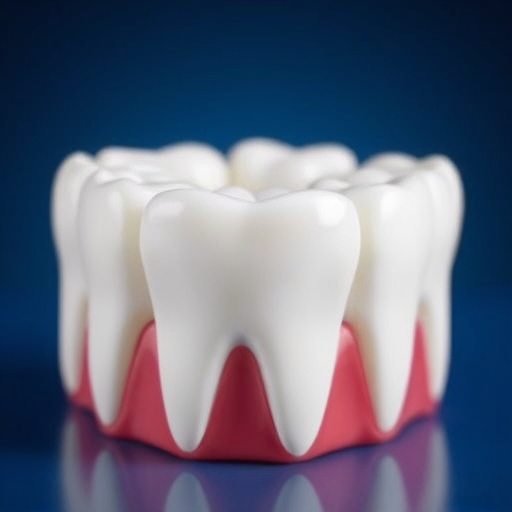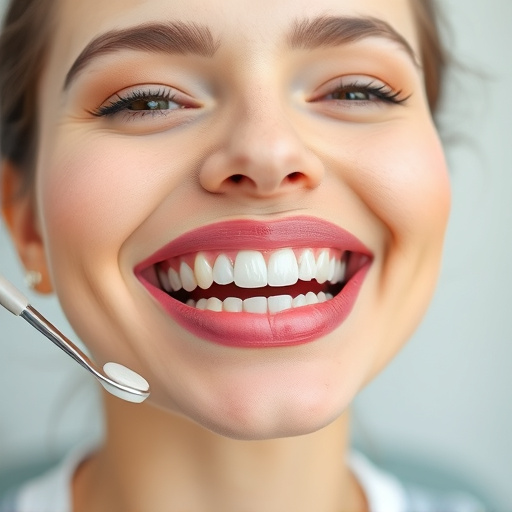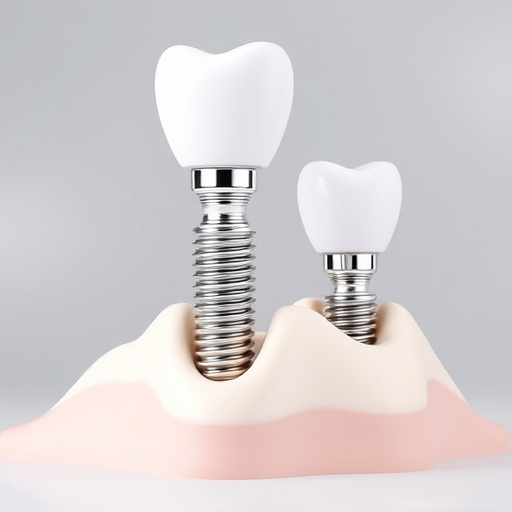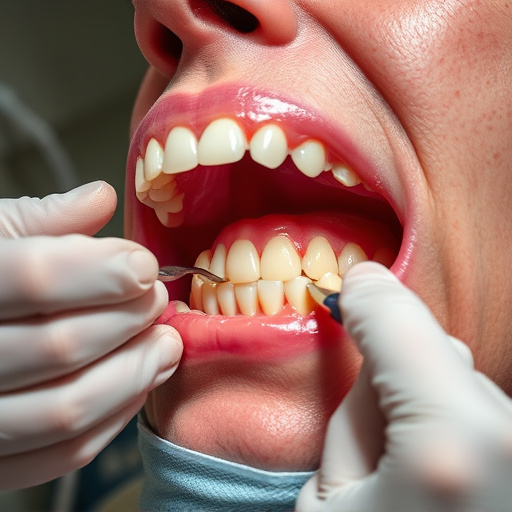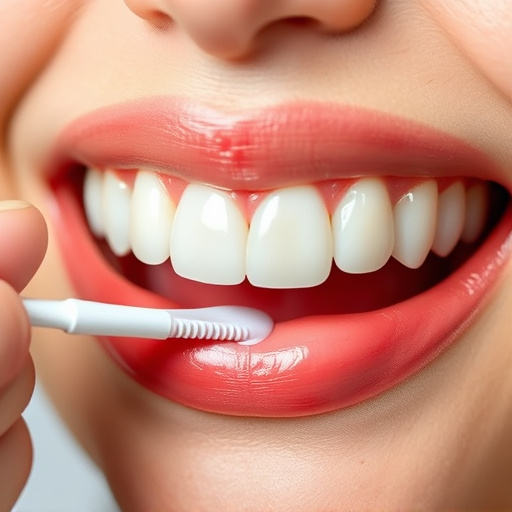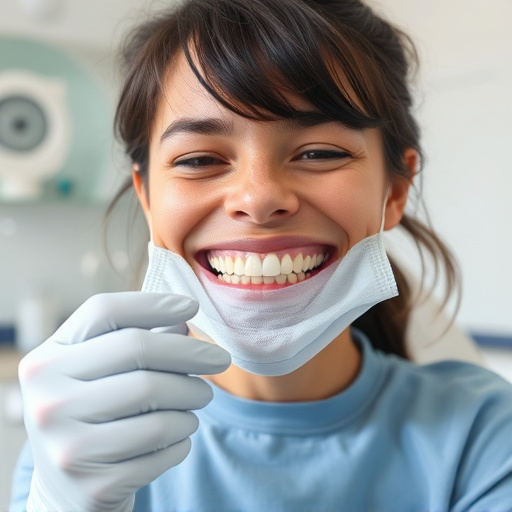Sleep apnea, a common sleep disorder with health risks, is managed by dental care through routine check-ups and procedures like wisdom tooth removal. Modern dentistry offers advanced sleep apnea treatment options beyond CPAP machines, including custom oral devices for jaw repositioning. This integrated approach caters to diverse patient needs, as dental clinics expand in-clinic sleep apnea treatment with a growing understanding of oral health's link to overall well-being. Procedures like implants and pedodontic care provide tailored solutions, enhancing comfort and adherence to sleep apnea treatment protocols.
Sleep apnea, a common yet often undiagnosed condition, affects millions worldwide. Understanding its impact on overall health is crucial. This article explores expanding sleep apnea treatment options within dental clinics, highlighting advanced solutions from CPAP machines to custom-fitted devices. We delve into the rise of in-clinic therapy, offering hope for improved diagnosis and management, transforming traditional approaches to sleep apnea care. Discover how dental professionals are now at the forefront, providing comprehensive treatments tailored to individual needs.
- Understanding Sleep Apnea and Dental Care
- Advanced Treatments: From CPAP to Custom Devices
- The Rise of In-Clinic Sleep Apnea Therapy
Understanding Sleep Apnea and Dental Care
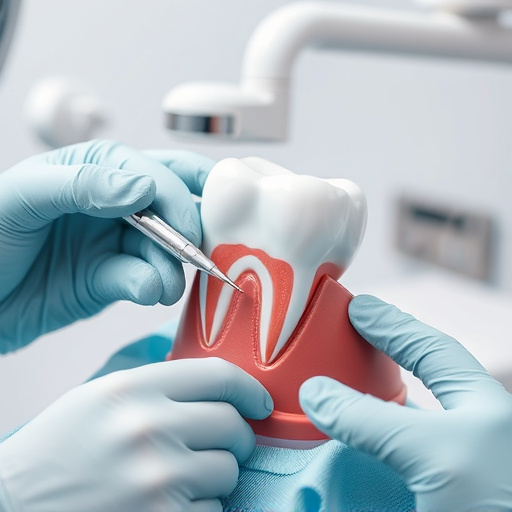
Sleep apnea is a common sleep disorder that affects millions worldwide, characterized by pauses in breathing during sleep. These episodes can last from a few seconds to several minutes and may occur hundreds of times each night, leading to disrupted sleep patterns and potential health risks. Understanding sleep apnea involves recognizing its causes, which range from anatomical factors like relaxed throat muscles to underlying medical conditions such as obesity or diabetes.
Dental care plays a significant role in managing sleep apnea treatment options. Many dental clinics are now equipped to address this condition due to its oral manifestations. Children’s dentistry professionals can identify early signs of sleep apnea through routine check-ups, while emergency dental care services may be needed for sudden complications. Even procedures like wisdom tooth removal have been linked to improving sleep apnea symptoms by reducing upper airway obstruction.
Advanced Treatments: From CPAP to Custom Devices
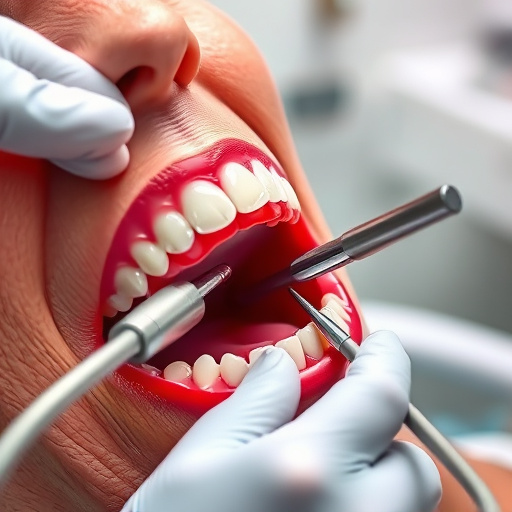
Advanced sleep apnea treatment options have evolved significantly, offering dental clinics a growing range of possibilities to address this common disorder. Beyond the traditional Continuous Positive Airway Pressure (CPAP) machines, modern dentistry now provides tailored solutions like custom-fitted oral devices. These innovative devices gently reposition the jaw and soft tissues during sleep, opening up obstructed airways and improving breathability.
The integration of advanced sleep apnea treatments into dental practices caters to patients’ diverse needs and preferences. While CPAP remains a reliable standard, many seek alternatives due to comfort issues or lifestyle constraints. Custom devices, often more comfortable and discreet, cater to those prioritizing convenience or desiring solutions that seamlessly blend with general or cosmetic dentistry procedures. This expansion of treatment options highlights the growing role of dental clinics in preventive and comprehensive patient care.
The Rise of In-Clinic Sleep Apnea Therapy
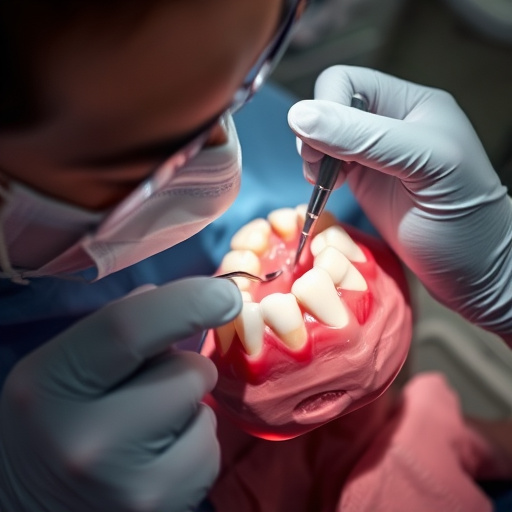
The dental field is witnessing a significant shift as sleep apnea treatment options are increasingly expanding within clinics. This growing trend reflects a recognition of the oral health connection to overall well-being, particularly in addressing sleep disorders like sleep apnea. In-clinic therapy provides a more accessible and convenient approach for patients who might otherwise struggle with traditional treatments or find them uncomfortable.
One notable advancement is the integration of advanced procedures such as dental implants and tooth extractions into sleep apnea management. Children’s dentistry is also playing a role, ensuring that even younger patients can benefit from improved breathing solutions while their oral structures develop. These innovative practices offer tailored sleep apnea treatment options, enhancing patient comfort and adherence to essential care protocols.
Sleep apnea, once primarily managed through devices like CPAP machines, now offers dental patients a growing array of options. The integration of advanced sleep apnea therapy directly within dental clinics has streamlined care, providing personalized solutions from custom oral devices to innovative in-clinic treatments. As understanding and technology evolve, so too does the accessibility and effectiveness of sleep apnea treatment, promising better rest and improved overall health for those affected by this common condition.





